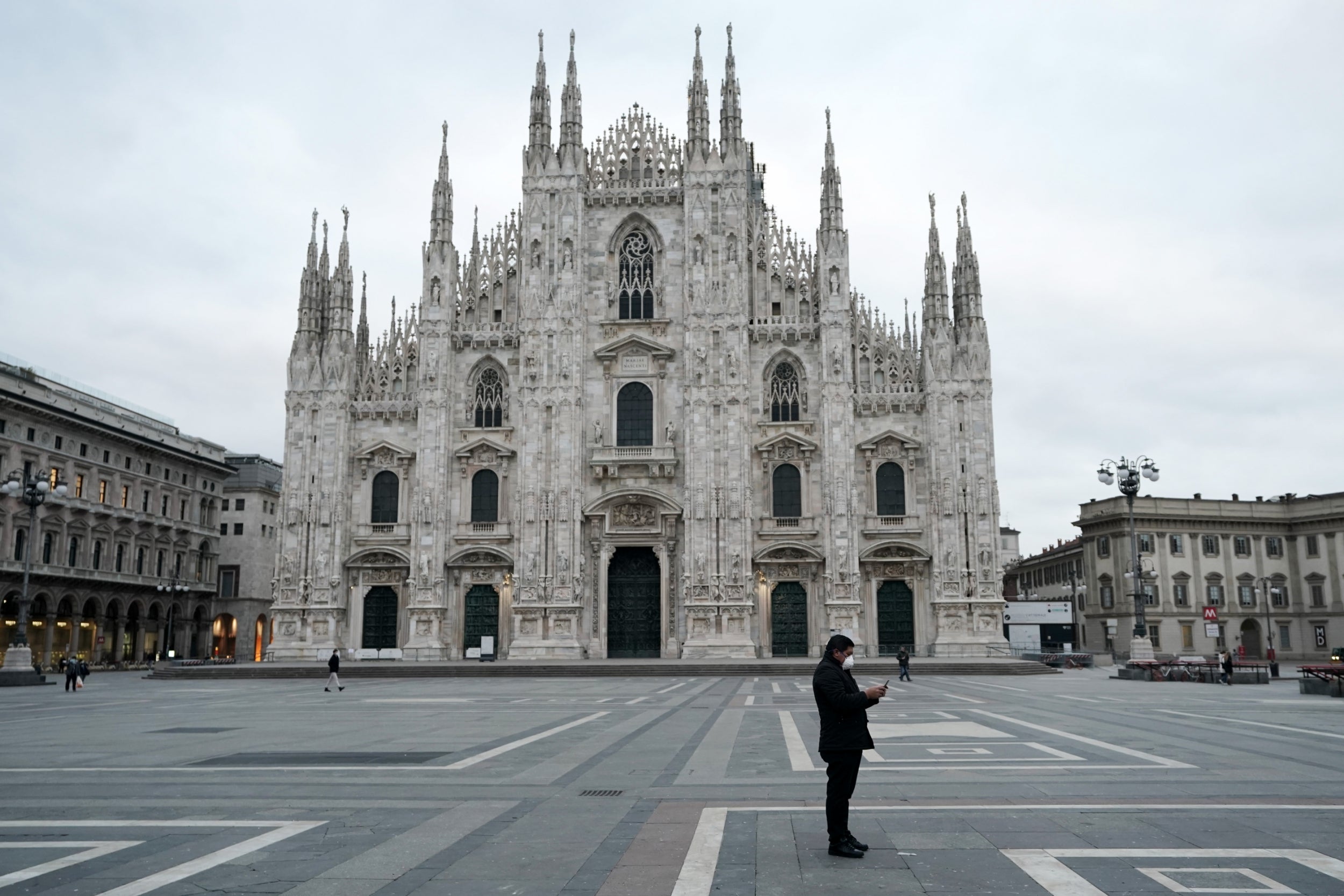Coronavirus: How Italy is refusing to let virus outbreak be the death of culture
Far from shutting down all theatre and poetry readings, Italians are using cultural events to help them get through the hours of virus lockdown – albeit with a modern twist. Federica Marsi reports from Milan

As the most devastating pandemic in human history swept through Italy from 1347 to 1351, a group of seven young women and three young men fled plague-ridden Florence to a deserted villa in its outskirts for two weeks. To pass the evenings, each one of them would tell a story, ranging from the erotic to the tragic.
This tale, conceived by 14th-century Italian author Giovanni Boccaccio as a frame for his collection of novellas, The Decameron, is not dissimilar to how the world of arts and culture is reacting to the rapid-fire spread of coronavirus in modern-day Italy.
Every evening since 5 March, an actor, writer, musician, dancer, singer or intellectual has slipped through the closed doors of Milan’s Palace of Art, home to the renowned Triennale cultural institution, to tell a story in front of an empty auditorium.
The roar of applause has been replaced by a silent cascade of emojis as performers broadcast live on the Triennale’s Instagram channel.
“We must try to turn this enormous problem into an opportunity,” Stefano Boeri, president of the Triennale, tells The Independent.
“Triennale Decameron”, which takes a cue from Boccaccio’s novellas, was born out of necessity. While “nothing can ever replace the warmth of the audience,” Boeri says, the physical disconnect has opened up new creative opportunities, from mounting a camera on acrobats to staging an itinerant choreography through the hallways of the Triennale.
Italy’s temples of culture have been the first to succumb as authorities rushed to curb the largest spread of coronavirus in Europe, which this week surpassed 15,000 cases. Overnight on 23 February, theatres, cinemas and museums turned from keepers of the country’s rich cultural heritage to treacherous transfer points for germs.
Cultural institutions found themselves out of work and with a potential audience of 60 million homebound people, as the total lockdown progressively shut all non-essential commercial businesses until at least 3 April.
James Bradburne, director of Brera Art Gallery (Pinacoteca di Brera), tells The Independent the current crisis had sparked “an internal discussion about what a museum really was”.
“A museum has to accompany every citizen from the cradle to the grave in different moments for different reasons, whether for inspiration, consolation, recreation and education,” Bradburne says.
“Notes for cultural resistance,” a virtual and interactive tour of the Pinacoteca, coupled with initiatives including the reading of children’s tales from Brera’s vast library collection, was its attempt to stay true to its role.
“I think this crisis is going to leave us with a renewed awareness of how precious our culture is,” and the realisation of how important it is to be with one another, he said.
Simultaneously, the outbreak of Covid-19 has accelerated the digitisation process that cultural institutions had already embarked on.
The Cineteca Italiana, officially founded in Milan in 1947 as a small stock of cinema masterpieces rescued from the destruction of the Second World War, has long been in the process of collecting and digitising over 23,000 films from all over the world, from the classics to niche ones whose authors are unknown.
Its director Matteo Pavesi tells The Independent that their streaming service, which begun only a few months prior to the outbreak, has gone up from 200 to 300 streams per day to a peak of 100,000 as his team doubled their efforts to upload new content from the collection.
“We are selecting material that can be appealing also to a general public of non-experts,” Pavesi says. Coming soon is the first adaptation by Mario Bonnard of Alessandro Manzoni’s novel The Betrothed, set during the plague that struck Milan around 1630.
As confusion and fear spreads over the new global pandemic, the culture industry has also taken up the challenge of informing the public while lightening the mood and exorcising fear.
Casa Fools, a collective of actors based in Turin, offers performances “at a safe distance” every Sunday as part of its cabaret “quarantine streaming”.
The cultural association Damatrà is in the process of producing “a viral tour” of Milan to recount the tales of the many pestilences that have swept through the city. On a normal day, actors would take a group of people out to the streets and point to the building and squares that have made history.
“We will need to be creative and organise a streaming that jumps from one actor’s home to the next,” Valentina Saracco, co-founder of Damatrà, tells The Independent. “I think it is important to highlight the fact that Milan has always managed to get back on its feet, and bring some comedy into this tragedy.”
Join our commenting forum
Join thought-provoking conversations, follow other Independent readers and see their replies
Comments